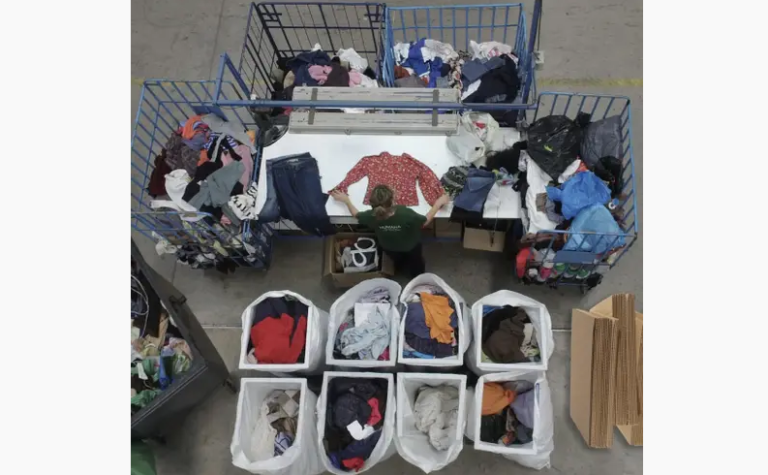A new report has revealed that the second-hand clothing (SHC) sector generated a significant €7 billion (£6.1 billion) contribution to the GDP of the EU and UK in 2023. The sector, which is considered vital for the future circular textile economy, directly accounted for €3 billion (£2.6 billion) of this total. Germany and the UK were the biggest contributors, with the industry adding €670 million (£580 million) and €420 million (£360 million) to their respective GDPs.
The report, titled The Socio-Economic Impact of Second-Hand Clothes in Africa and the EU27+, provides the first comprehensive analysis of the SHC sector’s value chain. It quantifies the socio-economic impacts of second-hand clothing trade between Europe and Africa, focusing on the EU27+, alongside Ghana, Kenya, and Mozambique. The study was commissioned by Humana People to People and Sympany+ and aims to fill knowledge gaps about the sector’s global significance.
In 2023, the sector supported around 150,000 jobs in the EU, 110,000 of which were green jobs directly within the industry. Many of these positions were filled by people with limited formal education, with 79% of the workforce comprising women. Employment opportunities were notably abundant in lower-income EU countries such as Bulgaria, Romania, and Poland, further emphasising the sector’s role in inclusive growth.
Karina Bolin, President of Humana People to People in Italy and Bulgaria, highlighted the report’s findings: “This report demonstrates the immense potential of the second-hand clothing sector to drive sustainable economic growth and create green jobs across continents. Now, more than ever, it is essential for policymakers to recognise the value of this industry and provide the legislative support and investment needed to unlock its full potential as a central factor for building a resilient, circular economy.”
In addition to its European impact, the SHC sector plays a crucial role in African economies. In 2023, second-hand clothing from the EU contributed $76 million (£62 million) to Ghana’s GDP, supporting 65,000 formal and informal jobs. Kenya’s SHC imports added $17 million (£14 million) to the nation’s economy, while Mozambique gained $10.7 million (£8.8 million), with thousands of formal and informal jobs supported in both countries.
The report highlights how second-hand clothing acts as a bridge between the Global North and South, with garments being recycled and sent from wealthier nations to regions where demand for affordable clothing is growing. This trade contributes to global sustainability efforts by keeping textiles in circulation, reducing waste, and helping to meet climate targets.
However, the report also warns that the sector faces increasing challenges, especially from fast fashion manufacturing giants like China. Without regulatory support, the second-hand clothing industry risks losing its competitive edge, threatening its ability to contribute to both European green policy goals and African climate targets.
The report’s release comes ahead of important discussions at the EU level to finalise amendments to the Waste Framework Directive, which could impact the second-hand clothing trade. With mandatory textile collection set to begin across the EU in January 2025, the report urges policymakers to support textile reuse operators to ensure the SHC sector continues to thrive.
Johanna Neuhoff of Oxford Economics, which contributed to the study, emphasised the sector’s importance: “Second-hand clothing is often overlooked in the debate on sustainability. Our findings show it delivers significant economic and social benefits, creating jobs and reducing environmental harm. This circular industry should be strengthened, not overlooked.”



